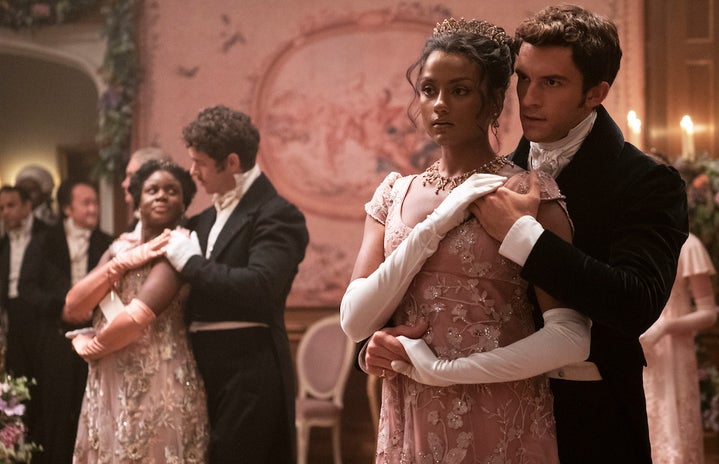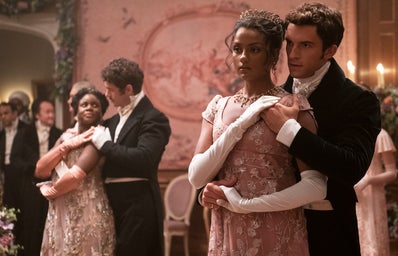The most watched English-speaking series on Netflix returned to our screens for season 2 earlier this year and viewers were far from disappointed.
Starring Jonathan Bailey, Phoebe Dynevor and Simone Ashley, with a voiceover by the one and only Julie Andrews, Bridgerton follows eight siblings of the Bridgerton family as they search for love, happiness, and purpose in London’s nineteenth century high society.
After following the eldest daughter Daphne Bridgerton (Phoebe Dynevor) in her season one quest to find a husband, the latest season revolves around eldest son and Viscount, Antony (Jonathan Bailey).
Much like his sister, the pressure to marry an appropriate suitor is firmly in Antony’s mind amidst another social season. But before attending the plentiful balls, parties and engagements on offer, Antony meets the intriguing Kate (Simone Ashley) who is unlike any woman he has met before. A headstrong, educated, and witty character, Kate captures Antony’s attention despite her not wishing to marry, leading Antony to search for a wife elsewhere. In true Netflix style, you’ll never guess who the Viscount is introduced to at the first ball of the season…Kate’s sister, Edwina (Charithra Chandran).
The turbulent love triangle that ensues between the three leaves viewers hooked after each episode, desperate to see how things will turn out between Antony, Kate and Edwina in their head versus heart quandary.
Bridgerton season two had a lot to live up to due to the triumph and rave reviews of the first season.
Despite the second season scoring lower on Rotten Tomatoes – with an approval rating 10% lower than its predecessor – many still enjoyed the sequel, and in some cases preferred it.
Personally, I found season two to be more engaging with its moments of sweet sincerity between Kate and Antony, such as the ‘bee-sting panic attack’ scene. Their story, to me, seemed more convincing than the romance of season one’s Daphne and Simon (Regé-Jean Page) and with the foundation of the show already set, allowed other characters’ narratives to unfold further, making season two all the more binge-worthy.
Unlike Julia Quinn’s novels which inspired the show, Bridgerton is less historically accurate, instead choosing to reimaging the past. The racially diverse cast for instance, merges history and the modern world in a progressive yet entertaining way which is rarely seen in period dramas.
Likewise, the music features orchestral covers of contemporary pop songs, modernising the Regency era which I personally loved throughout. Season two songs include Material Girl, Sign of the Times, Wrecking Ball, and Dancing On My Own to name a few. The show can therefore be described as breathing new life into the old. And despite being disapproved by some, this method has ultimately attracted a broad viewership, positively engaging new audiences in period dramas. Thus Bridgerton has done wonders for the genre and historical interest in general.
It is unsurprising that the show was ranked at Number One on Netflix, broke records and amassed 193 million viewing hours in its opening weekend. If you have yet to watch Bridgerton, even if period dramas aren’t your thing, the unrequited love story mixed with opulent scenery and exquisite costumes are enough to lure most people into a Bridgerton binge. Plus the numbers seem to speak for themselves.
I’d rate season two a solid 4.5/5. Bring on season three!


